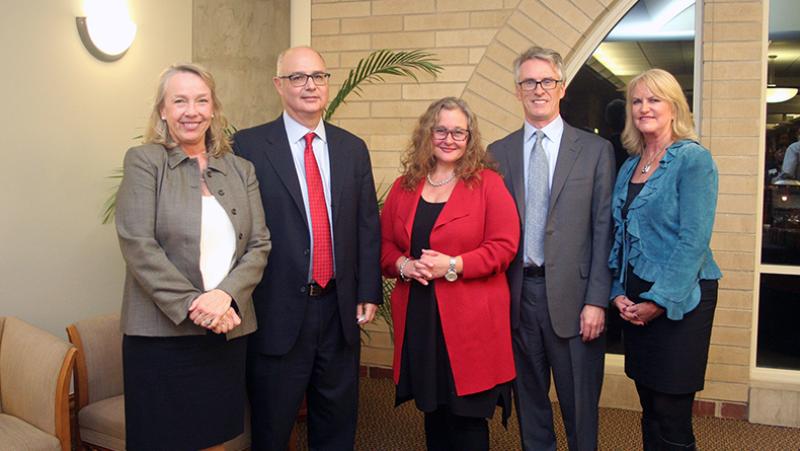Training Child Abuse & Neglect Attorneys
GSSW and the Sturm College of Law have teamed up to train Colorado’s child abuse and neglect attorneys

From knowing how to avoid retraumatizing victims to understanding family interventions, well-trained attorneys can improve outcomes for children and families involved in the child welfare and juvenile justice systems. But attorneys receive little specific training in juvenile and family law, and few are trained in social work topics such as child abuse and neglect.
The Graduate School of Social Work (GSSW) Butler Institute for Families is working to change that. In partnership with the University of Denver Sturm College of Law, Butler is implementing the Colorado Child Abuse & Neglect Attorney Training program to train the state’s city, county and district attorneys to better serve those involved in child abuse and neglect cases.
“It’s important that attorneys know not just the legal aspects of the job, but also the social work aspects of the job that deal with the trauma families experience,” says Butler Institute Director of Organizational Development Charmaine Brittain, who heads the training program in collaboration with law Associate Professor of the Practice Tanya Bartholomew. “They need to understand the evidence-based practices that keep families together, what is necessary for children to recover from trauma, disparities in the justice system, best practices for working with agencies, and how to partner with caseworkers.”
And, Brittain notes, attorneys also need to understand the desired child welfare outcomes — safety, permanency and well-being — so they’re advocating for those outcomes on behalf of the clients, agencies and communities they represent.
Funded by the Colorado Department of Human Services Office of Children, Youth & Families, the training program started with an assessment that identified the training topics that Colorado attorneys needed. “We also found there must be a variety of methodologies to transmit these learning opportunities,” Brittain says.
Those methodologies include a Colorado County Attorney Academy, classroom experiences at conferences, a program that matches existing learning opportunities to the needs of individual attorneys, and Communities of Practice events to connect child abuse and neglect attorneys and others in the judicial community.
Program implementation started in fall 2018. At a recent conference, 60 county attorneys attended a panel on ethics for caseworkers. The next day, attorneys explored methods of self-care — things such as aroma therapy, dog therapy and massage — to help them deal with the trauma they face on the job. A second Communities of Practice event will take place in spring 2019, and the County Attorney Academy will kick off in September 2019.
The program also includes a podcast series exploring the intersectionality of the judicial and child welfare systems. The first podcast covers the Indian Child Welfare Act and the role of county attorneys in compliance.
Ultimately, the Colorado Child Abuse & Neglect Attorney Training program could run for up to five years and train hundreds of attorneys. And, Brittain says, “We’re finding that the material also might be helpful to judges and other judicial officers.”
Brittain notes that the cross-disciplinary, interschool collaboration has been made possible by the support of GSSW Dean Amanda Moore McBride and Sturm College Dean Bruce Smith, as well as a Butler Institute team that includes Research Assistant Professor Shauna Rienks, the project’s lead evaluator; Carole Wilcox; Anthony Molieri; Sarah Roman; Tabitha Carver-Roberts; Missy Berglund; Brenda Lockwood; and MSW student Savanna Deiser.
“Butler’s goal is to strengthen systems, communities and families. Through this project, we’re able to do all three,” Brittain says. “When county attorneys do a better job representing agencies, then children, communities and families benefit as well.”




